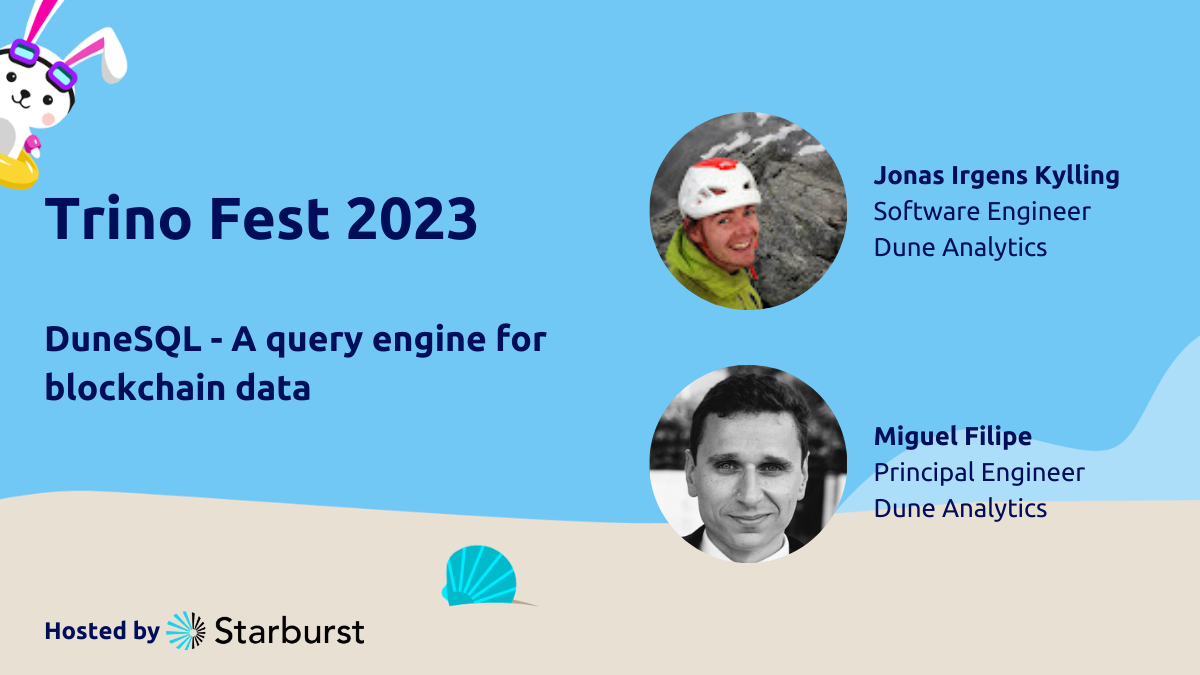
The need to make blockchain data easily accessible has risen over the recent years due to the popularity of cryptocurrencies, NFTs, and other uses of blockchains. Dune has made it their mission to make blockchain data more accessible. Dune is a community data platform for querying public blockchain data and building beautiful dashboards. They use their own query engine called DuneSQL, built as extension of Trino, to query blockchain data. In the session, Miguel and Jonas from Dune talk about the challenges of querying blockchain data, their transition to Trino, and how DuneSQL is operated. Watch the recording of the session or keep reading for a recap.
Recap
The Dune community data platform is a serverless, open access, community-wide collaboration portal. Dune experienced some difficulties with blockchain data, such as processing and ingesting raw data, deserializing and decoding function calls and arguments, and allowing the community to build abstractions. Their engine, DuneSQL, is Trino with custom extensions that they created. It runs tens of thousands of queries that are executed, saved, and re-used each day.
At first, Dune used PostgreSQL, where they sharded per blockchain and used vertical scaling. However, they quickly ran into bottleneck issues on storage size and IOPS (I/O operations per second). Thus, they switched to Apache Spark with Databricks to allow horizontal scaling and support more blockchains processing and to support the vast query volume that they had. Unfortunately, the result was not performant and not interactive enough. In the end, Miguel says that, “Trino was our choice for performance reasons, for the good environment and ecosystem, and to fully support our scheme and our datasets.” Using Trino addressed the performance issues.
Operating DuneSQL requires modifications and extensions of Trino to suit the needs of the users and platform as a whole. DuneSQL needs to manage the whole fleet and the capacity they have, because they use over 4000 CPUs per hour, do more than 100 billion S3 requests per month, and operate over 10 clusters. To handle the scheduling and load balancing of these massive operations, DuneSQL uses query execution services and gateway. Clusters have a fixed size to have a predictable capacity and performance. The gateway exposes the clusters to reduce the blast-radius so failures do not affect other clusters. Even with all these adjustments, they still have work to do as they plan to optimize the billions of S3 requests they receive, improve data layout, and implement sandboxed user defined functions.
Interested in DuneSQL? Check out the video where Jonas goes over the specificities and unique characteristics of DuneSQL.
Share this session
If you thought this talk was interesting, consider sharing this on Twitter, Reddit, LinkedIn, HackerNews or anywhere on the web. If you think Trino is awesome, give us a 🌟 on GitHub !